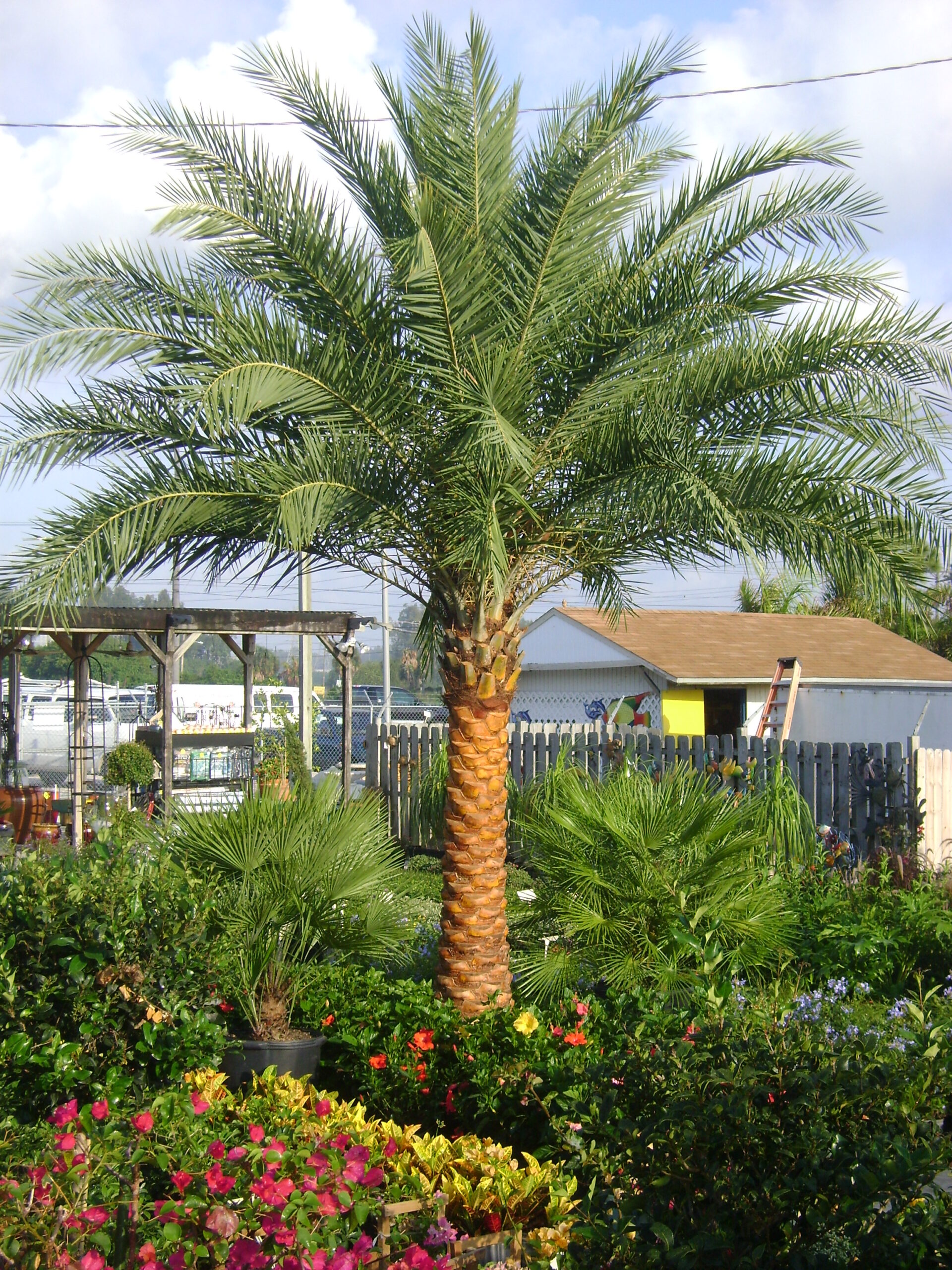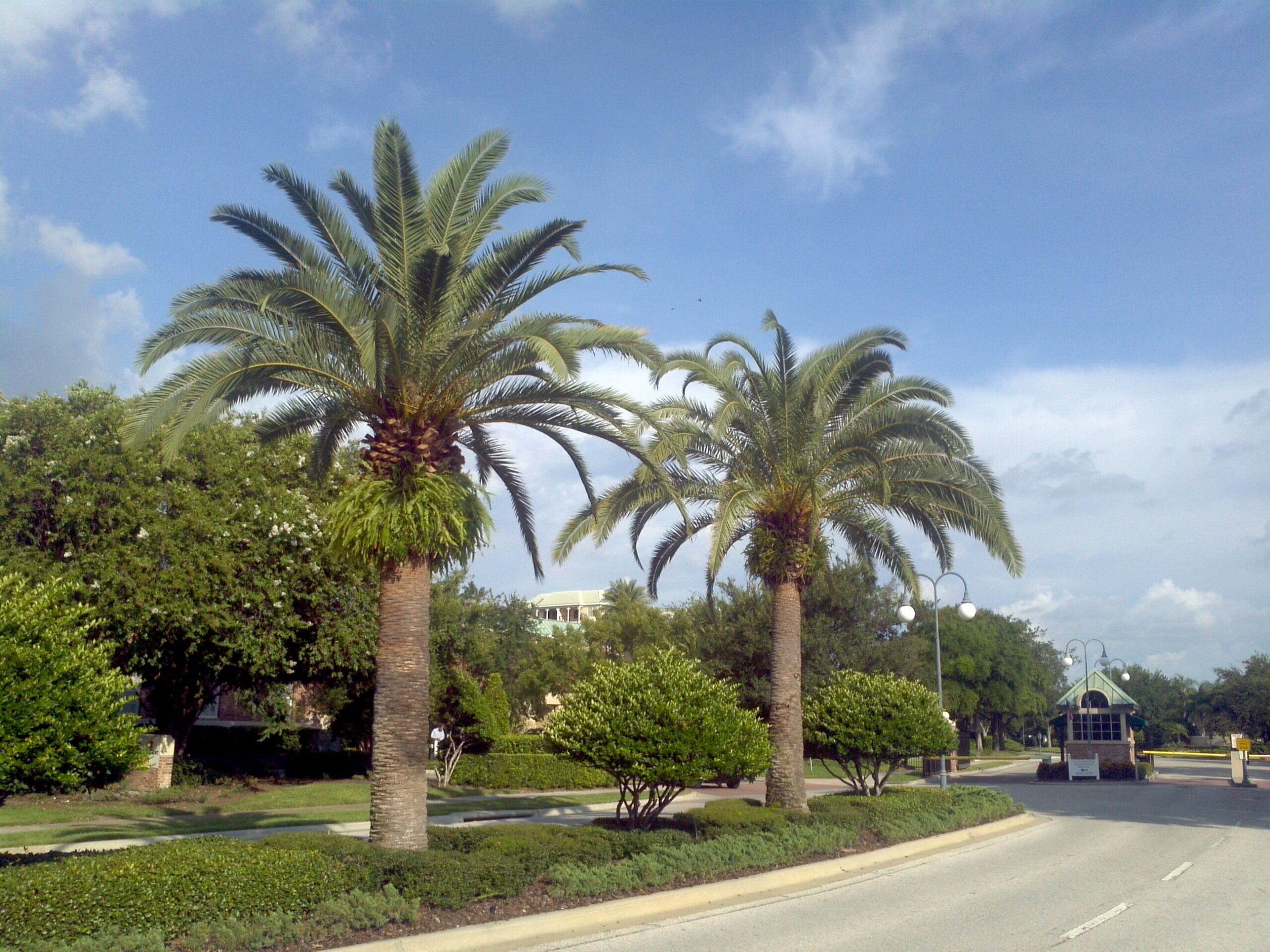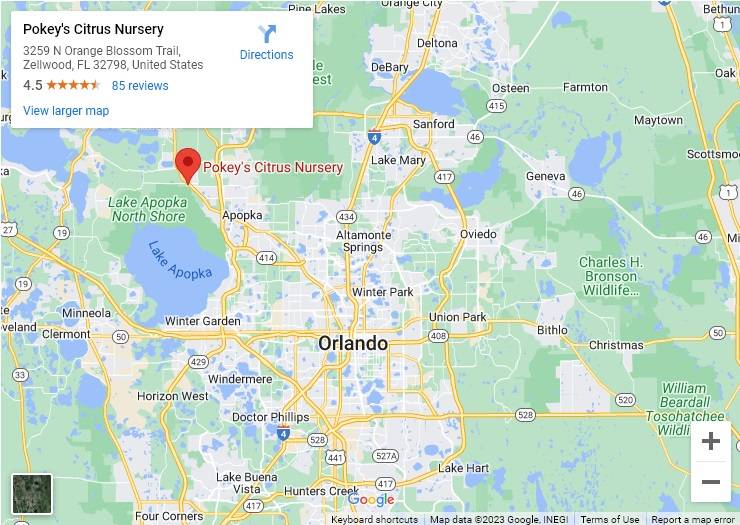The striking Sylvester palm is commonly known by many other names, including silver date palm, sugar date palm and wild date palm. This sturdy palm tree is easy to grow and makes a beautiful landscape specimen in Orlando yards. It is easily the most striking large specimen palm tree that is cold hardy enough to be grown without question.
The handsome Sylvester palm has a robust central trunk that is sometimes swollen at the base and lined with diamond-shaped leaf scars. The diamond patterns deepen as the tree ages. A slow-growing palm, the Sylvester can eventually reach up to 50 feet in height. The crown is full and curves attractively in an almost spherical shape. The eye-catching blue-green to silvery-green foliage is composed of many fronds that rise directly from the trunk. Each frond can be up to 10 feet in length. The 18-inch long leaflets are arranged opposite one another, creating a smooth appearance, and the leaf stems are lined with thorns. The creamy white to pale yellow flowers appear on stalks up to three feet long below the crown and are followed by clusters of fruits that are purplish-black when ripe. The dates are one-inch long ovals and contain a single seed. They are edible and can be dried, juiced or made into jams and jellies.
A native of India, the Sylvester is a surprisingly hardy palm, easily withstanding occasional winter temperatures as low as 15 F. They grow beautifully in almost any well-drained soil, even sand. They are drought resistant but grow more quickly and exhibit better color when watered regularly. Try to keep the earth uniformly moist without overwatering. Sylvester palms love the Orlando sunshine. Plant them where they will get plenty of direct light and have room to grow. Some pruning may be necessary to remove old fronds, which die away and ring the trunk like a skirt. Remember to wait until the fronds are completely brown and dead before removing them.
Sylvester palms can be cultivated outdoors or potted in sunny interiors or patios. Use them alone as an accent plant in a jungle garden, in islands of two or three differently sized trees, or plant several matching specimens in rows to line driveways or footpaths.



